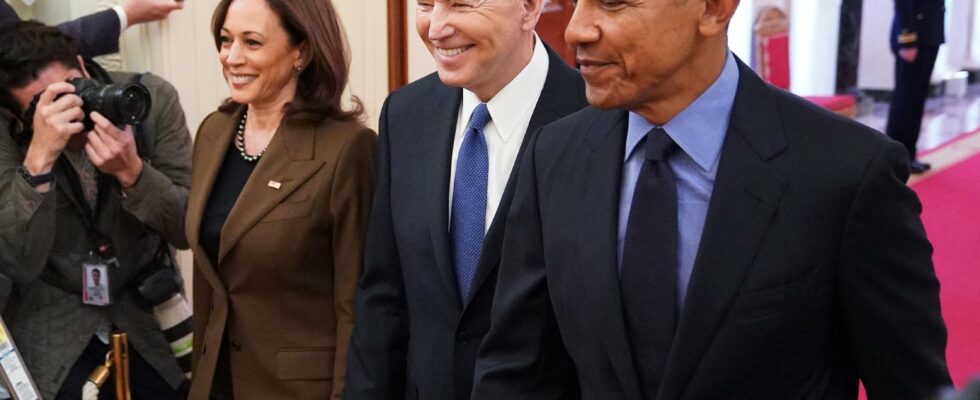The meeting was seen as a pivotal moment in the Democratic campaign: for months, the party convention was presented as the deadline by which Joe Biden had to be convinced to give up running for re-election. Once the White House incumbent withdrew in late July, Kamala Harris had until this major event to establish herself as the only candidate capable of beating Donald Trump.
This is a done deal since at the beginning of August, her candidacy was validated by 99% of the votes in a remote ballot. The inauguration of Kamala Harris at this 26th Democratic convention, which is being held from Monday 19 to Thursday 22 August, will thus be a mere formality. This did not prevent more than 50,000 people, journalists, politicians and activists from converging on the largest city in Illinois and the third largest city in the United States, Chicago, to attend the big gathering.
The conflict in the Middle East, a major guest at the convention
50,000 people present, not counting the 2,500 police officers mobilized and the several tens of thousands of demonstrators expected in front of the immense sports complex hosting the event. A mobilization that reminds us that the conflict in the Gaza Strip is much closer than the geographical distance separating the Middle East from the world’s leading power suggests. “It is a reality, and it cannot be ignored,” recognized to our colleagues from New York Times New Jersey Governor Phil Murphy, aligned with the rest of his camp, has understood this well: for some voters, the American presidential election is being played out in Gaza.
The convention was also tailored to meet the concerns of each party to the conflict in a context of increasing tensions in the Middle East. Speaking slots were allocated to the families of American hostages held by Hamas, but also to Keith Ellison, the attorney general of Minnesota and “one of the most prominent Muslims at the national level, according to the New York TimesThe Vice President’s husband, Doug Emhoff, who was in Paris on August 9th for the commemoration of the anti-Semitic attack on Rue des Rosiers, will take the stage to speak proudly of his Jewish origins.
The aspiration for unity threatened by a fractured electorate
A program that looks like a balancing act that the Democratic Party must comply with, forced to deal in this election with an electorate divided into two camps: on one side, those who advocate for strengthening the fight against anti-Semitism and continuing support for Israel. And on the other, those who, often younger, call for a ceasefire, and an immediate halt to the sending of military and financial aid to the Hebrew state. In recent months, the center-left party has been sharply criticized by a part of the progressive electorate, offended by the “pro-Israeli” positions of the Joe Biden administration.
In the spring, dozens of college campuses were rocked by pro-Palestinian students protesting what they saw as unconditional U.S. support for Israel. And with the election three months away, opponents of the Grand Old Party are still trying to elucidate a question that could be decisive in the next election: would there be enough pro-Palestinian Democratic voters likely to abstain to endanger the Democratic candidate? A recent poll conducted by the University of Chicago and GenForward reported by the New York Times reveals that 36% of American voters under 40 disapprove of military aid to Tel Aviv.
The presence of the Obamas, natives of Chicago, was confirmed this week. As was that of the President of the United States, who should open the speeches on Monday, with a speech that would have as one and only precept: “Ensure victory.” It is up to the now official candidate of the Democratic Party and her campaign teams to find out how.
